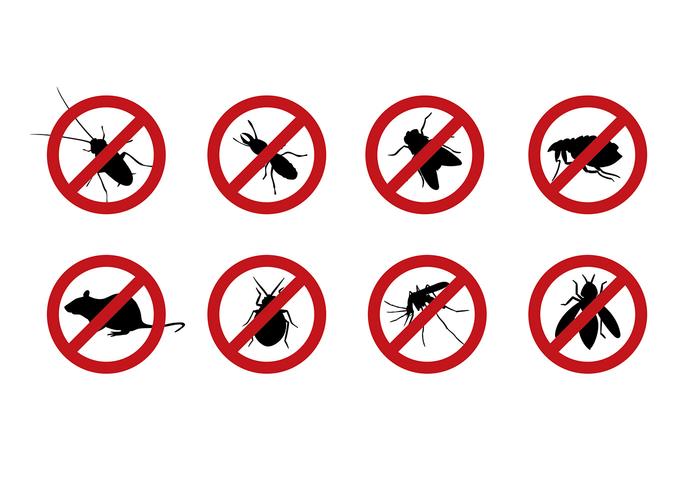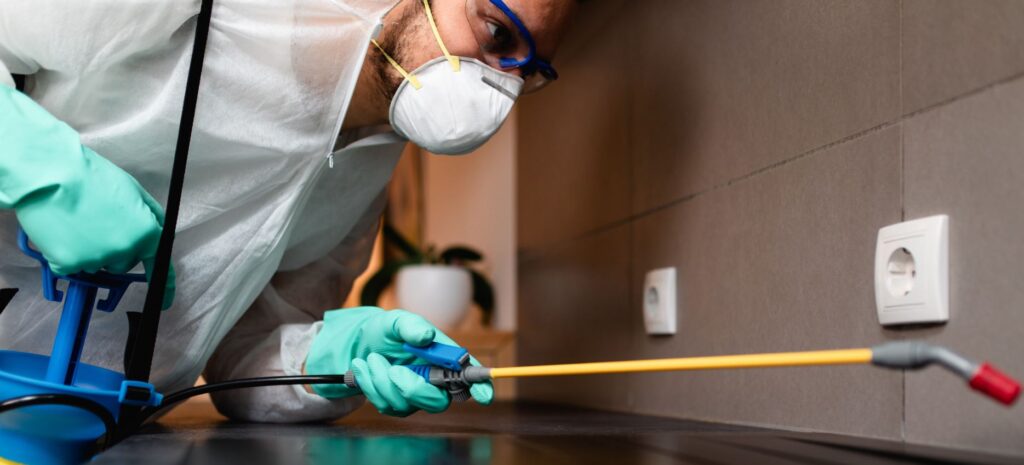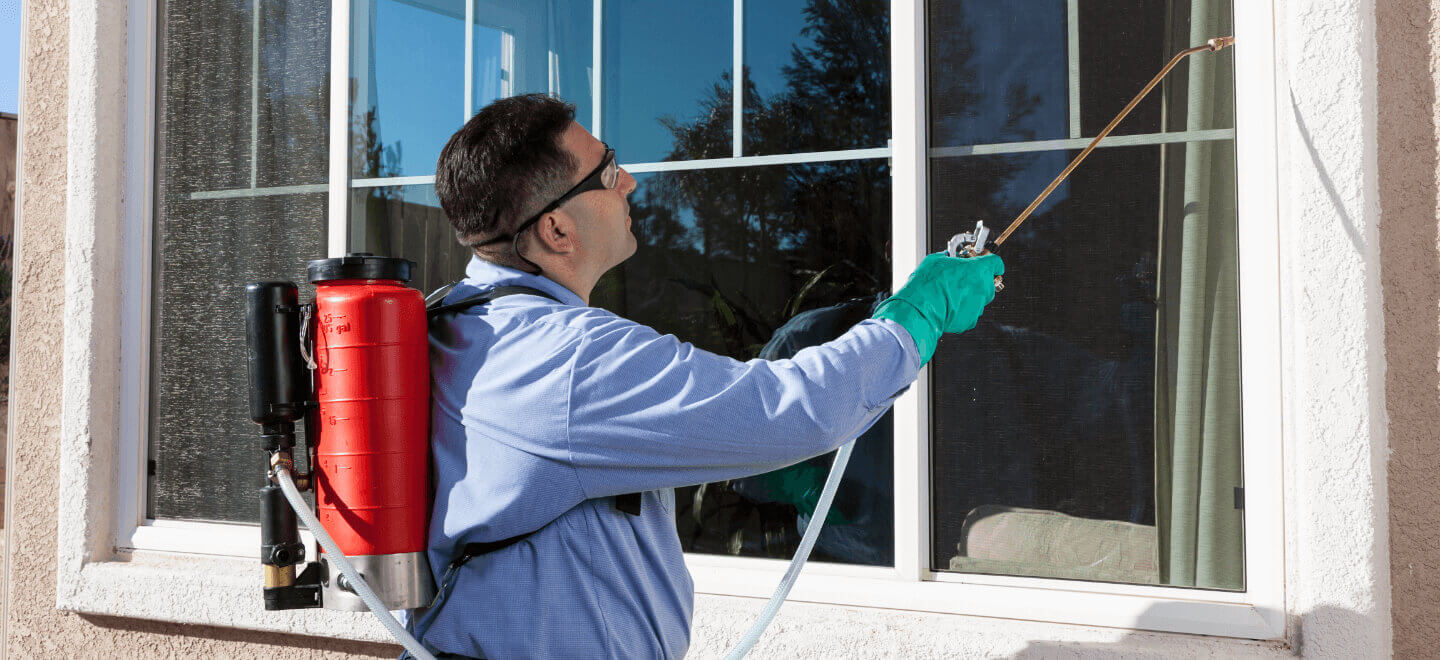Safe and Dependable Parasite Control for Lasting Security
The importance of reliable and risk-free parasite control can not be overstated, particularly in an era where environmental problems are critical. Reliable pest administration needs a diverse method that stabilizes ecological stability with the requirement for reliable pest suppression. By discovering environmentally friendly options and incorporated insect administration strategies, property owners can attain long-term security versus invasive types while securing beneficial ecosystems. However, the nuances of these techniques might not be quickly clear, triggering a closer examination of the practices that can result in sustainable pest control results. What actions can be required to guarantee both security and effectiveness in insect administration?
Understanding Parasite Control Methods
Parasite control incorporates a selection of approaches targeted at managing and getting rid of undesirable insects and rodents that can threaten both wellness and building. Comprehending these methods is crucial for reliable parasite monitoring.
The primary groups of bug control methods consist of mechanical, organic, and chemical techniques. Mechanical methods include physical barriers and traps to prevent parasite entrance and capture unwanted types. For instance, utilizing displays on windows or utilizing sticky traps can substantially minimize parasite populations without introducing damaging materials.

Chemical bug control is usually the most recognized method, utilizing chemicals to remove parasites. These chemicals can be reliable yet must be used with caution to avoid unfavorable impacts on non-target types and the environment.
Advantages of Eco-Friendly Solutions
Exactly how can eco-friendly services transform bug control techniques? The adoption of green bug control approaches uses many benefits, considerably enhancing the effectiveness and safety of pest monitoring (exterminator coquitlam). To start with, these remedies use all-natural components, minimizing the reliance on hazardous chemicals that can posture threats to human health and the environment. This shift not just secures pets and family members however additionally lessens the potential for soil and water contamination.

Another advantage is the positive influence on local biodiversity. Eco-friendly options are made to target specific pests while protecting valuable pests and wildlife, advertising a balanced ecological community. This approach lines up with the expanding customer demand for sustainable methods, improving the track record of parasite control carriers.
Integrated Bug Administration Methods
The application of environmentally friendly services naturally causes the adoption of Integrated Insect Administration (IPM) strategies, which even more enhance parasite control effectiveness. IPM is an alternative strategy that incorporates multiple tactics to handle parasite populations while lessening ecological effect. This technique emphasizes using organic, cultural, mechanical, and chemical controls, guaranteeing a lasting and balanced technique of pest management.
One basic facet of IPM is the complete evaluation of insect task and ecological problems. By keeping an eye on insect populations and recognizing their life process, practitioners can execute targeted treatments that interrupt the pest's environment or lifecycle, minimizing reliance on chemical pesticides. Furthermore, cultural practices such as plant rotation and environment control can considerably reduce insect facility and reproduction.
Another essential element is using biological control agents, such as valuable insects or microbes, which can naturally subdue insect populaces. When chemical applications are needed, IPM prioritizes making use of low-risk pesticides and uses them selectively, lessening exposure to non-target microorganisms and people.
Integrating IPM approaches not only boosts pest control efficiency yet additionally promotes a more secure community, lining up with the expanding demand for sustainable practices in pest administration.
Safe Practices for Home Owners
Understanding the significance of secure techniques in insect control can equip homeowners to successfully take care of pest issues while protecting their health and the atmosphere. Applying non-toxic methods and safety nets is important in minimizing exposure to damaging chemicals.
House owners must initially examine their atmosphere for conditions that draw in insects, such as standing mess, water, and food waste. On a regular basis cleansing and sealing entry factors can prevent bugs go to website from invading the home. Utilizing all-natural deterrents, such as necessary oils or diatomaceous earth, can offer effective choices to chemical pesticides.
When chemical therapies are required, home owners need to go with items that are particularly labeled as safe for household usage. It is vital to follow application standards diligently to avoid overexposure. Utilizing targeted treatments in locations where pests are recognized, rather than blanket spraying, can substantially decrease chemical usage.
Last but not least, keeping open communication with parasite control experts is important. Home owners ought to make inquiries about the security of items used and demand environmentally friendly choices whenever feasible. By adopting these risk-free practices, see this home owners can create a healthier living setting while effectively handling parasite concerns.

Tips for Long-Term Protection
Establishing a bug management technique that highlights long-term security can significantly enhance the efficiency of the secure practices previously talked about. To accomplish this, home owners need to implement regular assessments of their property, concentrating on hidden areas such as attics, basements, and crawl spaces. Early detection of pest activity is essential in stopping invasions from pesticide service taking hold.
Furthermore, preserving a clean atmosphere is vital. This consists of appropriate food storage space, immediately cleaning up spills, and regularly taking care of waste. These methods lower attractants that attract bugs into the home. Additionally, sealing access factors, such as fractures around home windows and doors, can effectively obstruct possible insect gain access to.
Landscaping needs to likewise be thought about; maintaining plants trimmed and keeping a distance in between plants and the home minimizes concealing spots for parasites. Using natural deterrents, such as crucial oils or diatomaceous earth, can better prevent infestations without turning to harsh chemicals.
Finally, collaborating with a specialist insect control solution for periodic examinations can provide an additional layer of security. These professionals can offer tailored referrals and advanced treatments, making certain that your home stays shielded against insects in the long-term.
Conclusion
Finally, reliable and risk-free parasite control requires a complex approach that stresses environment-friendly methods and integrated bug monitoring. By executing all-natural deterrents, conducting routine assessments, and keeping correct sanitation, homeowner can considerably decrease bug populaces while shielding advantageous insects and the atmosphere. Partnership with expert bug control solutions boosts the performance of these approaches, making sure customized services that supply enduring defense and tranquility of mind versus future invasions.
Efficient bug administration needs a diverse technique that balances environmental stability with the need for effective pest reductions. The fostering of green bug control approaches uses various benefits, significantly boosting the performance and security of insect monitoring.The execution of environment-friendly options normally leads to the fostering of Integrated Insect Management (IPM) approaches, which additionally improve pest control efficacy. exterminator coquitlam. By monitoring parasite populations and identifying their life cycles, experts can apply targeted treatments that interfere with the bug's habitat or lifecycle, lowering dependence on chemical pesticides.In conclusion, secure and trustworthy pest control calls for a diverse strategy that highlights eco-friendly approaches and incorporated insect monitoring